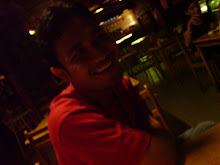
Anthropology has much for which to thank bin Laden. After decades of criticism, anthropology was on the ropes not long ago. Its founding father and mother were discredited: Bronislaw Malinowski for lusting after young natives and Margaret Mead for cooking up ethnographic accounts. Its own practitioners despaired and predicted “The End of Anthropology” (Worsley, 1966; Banaji, 1970). When the field appeared at its weakest, the powerful new voice of Edward Said emerged to denounce it as tainted by the dreaded word ‘Orientalism’ (Said, 1978). Perhaps the unkindest cut was that anthropology was not even seen as a bulldog in the service of the Western imperialists but rather as a mere puppy. Students of anthropology wandered aimlessly – sometimes into postmodernist literary conceit and sometimes into autobiographical excess. Like John Keats’s knight in ‘La Belle Dame Sans Merci’ anthropology appeared to be ‘ailing’. It appeared ‘alone and palely loitering.’
September 11 changed all that. The main interests of anthropology – ideas of ethnicity, group loyalty, honour, revenge, suicide, tribal code, the conflict between what anthropologists call the Great Tradition of world religions and their local practice or the Little Tradition – were being discussed everywhere. Perhaps people were not even aware that they were discussing these issues as they were identified with traditional, even ‘primitive’ societies, and therefore discredited; now they were front-page news. What was clear was the sense of hyper-asabiyya and the accompanying paranoia and uncertainty.
Ironically, most religions and communities across the globe felt they were under siege. American television broadcast its news and discussion under the title ‘America Under Siege’; Israelis felt that the Arad had besieged them; and Indian complains of being hemmed in by aggressive Muslim neighbours. The United States, Israel and India appeared paralyzed in the face of Muslim suicide bombers. They had no answer to the violence except more violence.
With each killing the siege mentality spread. State strategy appeared to be to use more brute power and inflict more pain on the opposite side. Where vision and compassion were required, the state was seen to kill and hurt people and destroy property. Its representatives did not even spare the mosque, the House of Allah.
The United States, Israel and India were compromising hard-won ideas of modern, thriving democracy. There were cases of illegal detention, suspension of civil liberties and unauthorized surveillance. The victim was invariably a Muslim.
Muslims, whether living as a majority or a minority felt especially vulnerable after September 11. The fact that all 19 of the hijackers were Muslim appeared to condemn by association every Muslim on the planet. Any expression of Muslim identity would risk the fear of being suspected as ‘terrorist’ activity. Muslims felt that their religion Islam was under siege…….


1 comment:
Tell me what all the anthropologists across the globe could contribute to make this world a better place to live?
Post a Comment